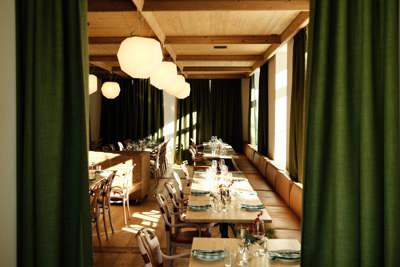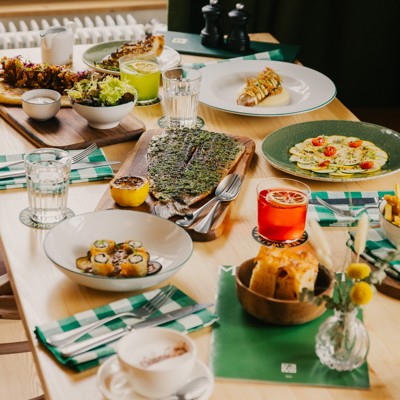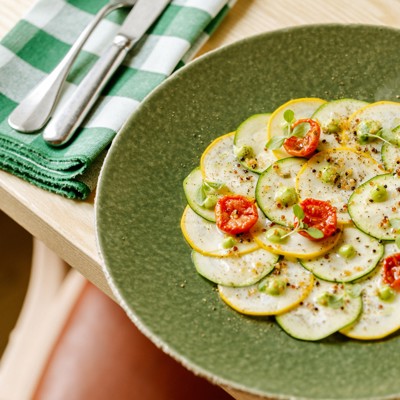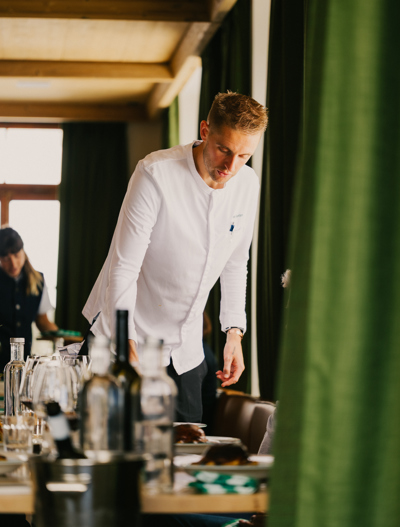INSPIRATION
I draw my inspiration from the future of our planet. As Chefs, we have the power to influence how gastronomy evolves, and this responsibility is at the heart of my process. My commitment to plant-based cuisine is based on three pillars: health, ethics and sustainability.
When it comes to health, eating too much meat is not ideal. Our body struggles to digest it effectively, requiring precious energy which would be better used for recovery, vitality and general wellbeing.
In terms of ethics, intensive animal farming is a deeply flawed system. The animals are treated as mere numbers, and they live in distressing conditions. There’s a fundamental difference between buying meat in a respectful and sustainable way and the current industrial model, which causes pointless suffering and a negative impact on the environment and on communities. This suffering leaves a mark that goes way beyond the plate.
Lastly, with regard to sustainability, animal farming requires extensive use of agricultural land, not just for the cattle, but also for the production of feed grain for them to eat, which contributes to deforestation and environmental degradation. That said, I don’t consider tofu or soy as a miracle solution, as their cultivation is equally as land intensive. Instead, I advocate a balanced and sensible approach to food, which respects both the planet and our health.
I draw my inspiration from the future of our planet. As Chefs, we have the power to influence how gastronomy evolves, and this responsibility is at the heart of my process. My commitment to plant-based cuisine is based on three pillars: health, ethics and sustainability.
When it comes to health, eating too much meat is not ideal. Our body struggles to digest it effectively, requiring precious energy which would be better used for recovery, vitality and general wellbeing.
In terms of ethics, intensive animal farming is a deeply flawed system. The animals are treated as mere numbers, and they live in distressing conditions. There’s a fundamental difference between buying meat in a respectful and sustainable way and the current industrial model, which causes pointless suffering and a negative impact on the environment and on communities. This suffering leaves a mark that goes way beyond the plate.
Lastly, with regard to sustainability, animal farming requires extensive use of agricultural land, not just for the cattle, but also for the production of feed grain for them to eat, which contributes to deforestation and environmental degradation. That said, I don’t consider tofu or soy as a miracle solution, as their cultivation is equally as land intensive. Instead, I advocate a balanced and sensible approach to food, which respects both the planet and our health.















